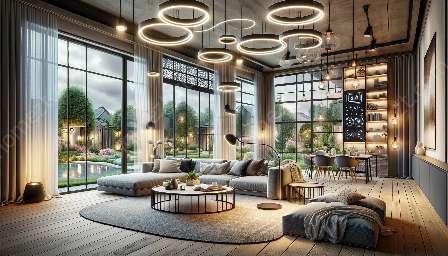Smart lighting systems have the potential to transform our living spaces, offering enhanced convenience, energy efficiency, and aesthetic appeal. However, the implementation of these systems raises important legal and privacy considerations that must be carefully addressed. This article explores the legal implications of using smart lighting solutions, the privacy concerns associated with intelligent home design, and how to ensure compliance with regulations while reaping the benefits of smart lighting technology.
Legal Implications of Smart Lighting Solutions
As smart lighting systems become increasingly integrated into homes and commercial spaces, it is essential to understand the legal considerations associated with their use. One of the key aspects involves compliance with building codes and regulations. Installations of smart lighting solutions must adhere to safety standards and building regulations to ensure the well-being of occupants and to avoid potential liabilities.
Furthermore, the deployment of smart lighting systems may also raise intellectual property issues. Companies and individuals developing innovative lighting technologies need to protect their intellectual property rights through patents, trademarks, and copyrights. Conversely, users of smart lighting solutions should be mindful of potential infringement issues and ensure that they have the necessary permits and permissions to use and modify these systems.
Privacy Concerns in Intelligent Home Design
Intelligent home design, which encompasses smart lighting systems, presents unique privacy challenges. The collection and processing of personal data by these systems raise concerns related to the privacy and security of individuals. Smart lighting solutions often rely on sensors and cameras to gather information about occupants' behavior and preferences, leading to potential privacy violations if not managed appropriately.
Moreover, the interconnected nature of smart lighting systems means that data collected by these devices could be vulnerable to unauthorized access or misuse. This necessitates the establishment of robust security measures to safeguard the privacy of residents and users from potential cyber threats. Additionally, homeowners and businesses must be transparent about the data collected by smart lighting systems, obtain informed consent from users, and implement clear data retention and deletion policies to uphold privacy regulations.
Compliance and Best Practices
When integrating smart lighting solutions into intelligent home design, it is imperative to adhere to legal requirements and best practices to mitigate potential risks. This entails conducting thorough assessments of the legal landscape and understanding the regulatory frameworks that govern the use of smart technologies in lighting and home automation.
Furthermore, adopting privacy by design principles can help minimize privacy risks when deploying smart lighting systems. This approach involves integrating privacy features into the design and functionality of the systems from the outset, rather than retrofitting them later. By prioritizing privacy and data protection, individuals and organizations can proactively address privacy concerns and build trust with users.
Conclusion
Smart lighting systems offer a myriad of benefits, but their implementation necessitates careful attention to legal and privacy considerations. By navigating the legal landscape, protecting intellectual property rights, and prioritizing privacy in home design, individuals and businesses can harness the potential of smart lighting technology while upholding legal and ethical standards. This convergence of innovative lighting solutions, intelligent home design, and legal and privacy considerations epitomizes the harmonious coexistence of modern technology and regulatory responsibility.


